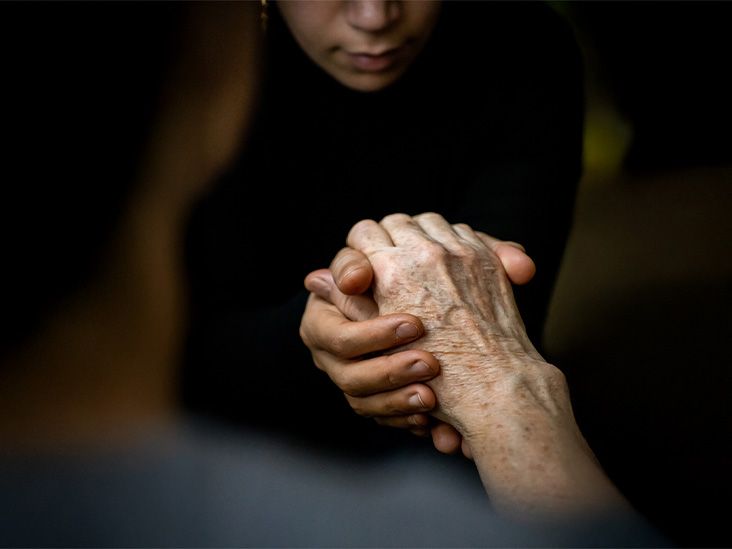So you're turning 60, and you've probably noticed your body has started... well, talking differently. It's like you're having a conversation with someone who's gradually changing their accent, and you're not quite sure how to respond anymore.
You're not alone in this. I've watched friends reach this milestone and suddenly become experts at deciphering new bodily signals. What used to be "just tired" might now mean something needs attention. What seemed like minor aches might be your body's way of saying it's time for a different approach to self-care.
Here's what I've learned from talking to doctors, researchers, and real people who've been through it: aging at 60 isn't about decline it's about adaptation. Your body's updating its operating system, and while some features might be slower, others become surprisingly sophisticated.
Why Everything Feels Different
Let me tell you what's happening on the inside. Your body around 60 is like a well-worn car that's had some major tune-ups it still runs, but the engine sounds different, and you notice it needs a little more care.
Hormone production? It's taking a nosedive, especially for women experiencing menopause. Your brain chemistry's changing too, and those molecules in your bloodstream are doing somersaults that scientists are only now beginning to understand. There's actual research showing massive molecular shifts happening in your early 60s it's not just in your head!
Michael Snyder, a researcher at Stanford, points out that our 40s and early 60s are actually periods of intense biological disruption. The good news? This means it's also a prime time for positive intervention.
Systems That Start Speaking Up
Your body's like an old friend who's suddenly become more vocal about their needs. Let's break down who's talking and what they're saying:
Bones, Joints, and Muscle Memoirs
Your skeletal system has been quietly serving you for decades, but now it's time for some honest conversations. Bone density starts declining, especially for women after menopause. Your joints are showing wear that creak when you get up from sitting isn't just dramatic flair, it's cartilage letting you know it's time for some TLC.
Here's what helps: weight-bearing exercises aren't just buzzwords. Simple walking, dancing, or lifting light weights can make a genuine difference. I know someone who started resistance training at 63 and gained noticeable strength within months. Your muscles might take longer to respond, but they're still listening.
Skin's New Chapter
Your skin's the envelope that's been protecting everything inside, and now it's getting thinner. That means it tears easier, heals slower, and needs more moisture than ever before. Wrinkles aren't defeat they're like a roadmap of a life well-lived, but they do mean you need to be kinder about sun protection and hydration.
Have you noticed you get cold more easily? That's because your skin has fewer sweat glands now. Layering clothes and keeping rooms at comfortable temperatures isn't just comfort it's practical health management.
Heart-to-Heart with Your Cardiovascular System
Your heart's been a reliable workhorse, but now it's asking for different treatment. The heart muscle thickens, and blood vessels lose some flexibility. Your max heart rate during exercise drops significantly and no amount of motivation changes that biological reality.
This doesn't mean giving up. It means adjusting expectations. That 30-minute daily walk? It's doing more for your heart than longer, intense sessions ever did. Eating less salt and saturated fat isn't deprivation it's conversation with your cardiovascular system.
Your Brain's Evolving Story
Here's where people get unnecessarily worried. Yes, you might find yourself walking into rooms and forgetting why you're there. Yes, remembering names can take longer. But here's the beautiful part: your vocabulary, your wisdom, your understanding of complex situations? Those are sharper than ever.
I love this metaphor: your brain at 60 is like a library that's reorganized itself. Some sections are harder to navigate, but the wisdom accumulated in those stacks? Priceless. Learning new skills, engaging in meaningful conversations, even doing crossword puzzles these aren't just mental exercises, they're investments in keeping your mind vibrant.
Digestive Dialogues
Your digestive system's slowing down conversations too. Food moves differently through your system now, and certain medications can make things even more interesting. Fiber-rich foods become your allies, not just good nutrition.
Staying active helps digestion more than you might expect. It's like keeping a conversation flowing movement keeps things moving internally too.
Bladder and Kidney Updates
Your bladder's becoming more expressive about its needs. That sudden urge to rush to the bathroom? It's not a character flaw it's biology. Bladder muscles weaken, and the urgency increases. This affects sleep, confidence, and daily routines.
Here's something people don't talk about enough: the emotional toll. Feeling anxious about bladder control can limit social activities. But kegels those mysterious exercises they mention are genuinely helpful, even when started later in life.
Vision and Hearing Shifts
Your eyes are transitioning from close-up cameras to distant binoculars. Presbyopia that fancy word for needing reading glasses is just your eyes specializing in what they do best now. You might notice more sensitivity to glare, and night driving becomes trickier.
Hearing changes sneak up on people. You might not realize conversations are becoming harder to follow until someone mentions it. Modern hearing aids are nothing like the old models they're sophisticated little computers that can make a real difference.
When to Take Concerned Notice
Now, here's important: not every change means trouble. Some are normal conversations your body is trying to have with you. But some shifts deserve immediate attention.
Memory loss that disrupts daily life that's different from occasionally forgetting an appointment. Sudden vision changes that make driving unsafe deserve professional evaluation. Falls, dizziness, or loss of coordination aren't normal aging. Trouble swallowing, speech problems, or sudden hearing changes? These need immediate attention.
Mood changes that significantly affect your daily motivation are conversations worth exploring with a healthcare provider. Sadness and grief are natural, but persistent changes in mood that interfere with life deserve professional support.
Living Well in Your Updated Body
Here's the good news: small adjustments can make enormous differences. You don't need complicated routines you've earned the right to simplicity that actually works.
Exercise That Respects Your 60-Year-Old Body
You're not competing with your 30-year-old self anymore, and that's liberating. Exercise becomes less about performance and more about partnership with your body. Swimming, walking, dancing these aren't just activities, they're conversations with your cardiovascular and musculoskeletal systems.
I know someone who started swimming at 65 because walking hurt too much. Within six months, they were walking again, with less pain and better mobility. The key isn't pushing through pain it's finding movement that respects where your body is now.
Food That Speaks to Your Needs
Nutrition becomes more than just calories it's communication. Protein and vitamin D aren't just supplements, they're investments in bone and muscle health. Antioxidants aren't just fancy terms, they're support for cellular health over time.
Olive oil, garlic, leafy greens these aren't trendy superfoods, they're elements of a conversation with your cardiovascular system. Consistency matters more than dramatic changes. Small, sustainable habits create lasting support for your body.
Emotional Wellness as Physical Support
Your emotions and physical health are having conversations whether you notice or not. Grief, loneliness, stress these aren't just feelings, they're stress signals your body responds to. The good news? Positive emotional practices support physical health too.
Mentoring others, spending genuine time with friends, even journaling these aren't just nice activities. They're investments in your physical wellbeing. Your body responds to emotional wellness with better immune function, better sleep, and better overall resilience.
Planning for a Thriving Future
This isn't about preparing for decline it's about setting yourself up for continued thriving. Small household modifications can make huge differences. Better lighting helps prevent falls. Grab bars in bathrooms aren't admissions of weakness they're smart support.
The earlier you start considering future needs, the more choices you have. It's like financial planning you don't wait until you're broke to start saving. These preparations are investments in continued independence and quality of life.
Moving Forward with Wisdom
You've reached 60 with a body that's successfully adapted to six decades of challenges. That's not failure that's incredible success. Some systems are updating, some are slowing down, but the wisdom you've accumulated? That's richer than ever.
Your body at 60 is like a well-written book some chapters move at different paces, some themes evolve, but the story continues. You don't need to stop enjoying life's simple pleasures cake, singing, dancing in front of mirrors these are part of what keeps your spirit vibrant.
The science supports habits that keep you sharp, but the real magic is in approaching these changes with curiosity rather than fear. Your body's having conversations with you listen, adapt, and keep thriving.
What conversations is your body having with you right now? Have you noticed any of these shifts? Share your experiences we're all learning to listen to our updated operating systems together.
FAQs
What are the most common body changes at 60?
Common changes include reduced bone density, joint stiffness, skin thinning, slower metabolism, and shifts in vision or hearing. Hormonal changes, especially in women, also play a major role.
How can I stay healthy after 60?
Focus on regular low-impact exercise, a nutrient-rich diet, consistent sleep, emotional wellness, and staying socially active. Regular health check-ups are also essential.
Why do I feel more tired at 60?
Energy levels may drop due to hormonal changes, medication side effects, reduced muscle mass, or sleep disruptions. Listening to your body and adjusting routines can help.
Is memory loss at 60 normal?
Mild forgetfulness is common, but significant memory changes that affect daily life are not normal and should be discussed with a healthcare provider.
Can lifestyle changes improve my body at 60?
Absolutely. Exercise, a balanced diet, stress management, and staying hydrated can significantly improve physical function and overall well-being after 60.
Disclaimer: This article is for informational purposes only and does not constitute medical advice. Always consult with a healthcare professional before starting any new treatment regimen.
Related Coverage
Learn which foods to avoid in older age to maintain health, prevent illness, and boost energy as you age....
Find out if Medicare hospice care covers 24-hour in-home support and what services are included under hospice benefits....
Find the right Rhode Island Medicare plan with our simple guide. Compare Original Medicare and Medicare Advantage options....
See if you qualify for Medicare grocery benefits through Medicare Advantage plans. Get food allowances to help manage your health....
Coping with retinol irritation like burning, redness, dryness? Learn how long symptoms last, when to worry, and get aftercare tips to heal skin post inflammation....
Medicare covers end-of-life planning services. Learn how to prepare for future healthcare decisions and ensure your wishes are respected....
Learn the importance of cleansing and exfoliating skin. Get tips for choosing the right facial cleansers and exfoliators for your skin type and how to properly exfoliate your face and body....
Learn if Medigap Plan N is right for you. Compare benefits, costs, and coverage of Plan N vs. other Medigap options....
Avoid common Medicare mistakes that cost you money. Learn how to enroll on time, choose the right plan, and save on healthcare....
Get clear info on Medicare Arizona options, including Part A, B, C, and D. Find the best plan for your health and budget in 2025....









